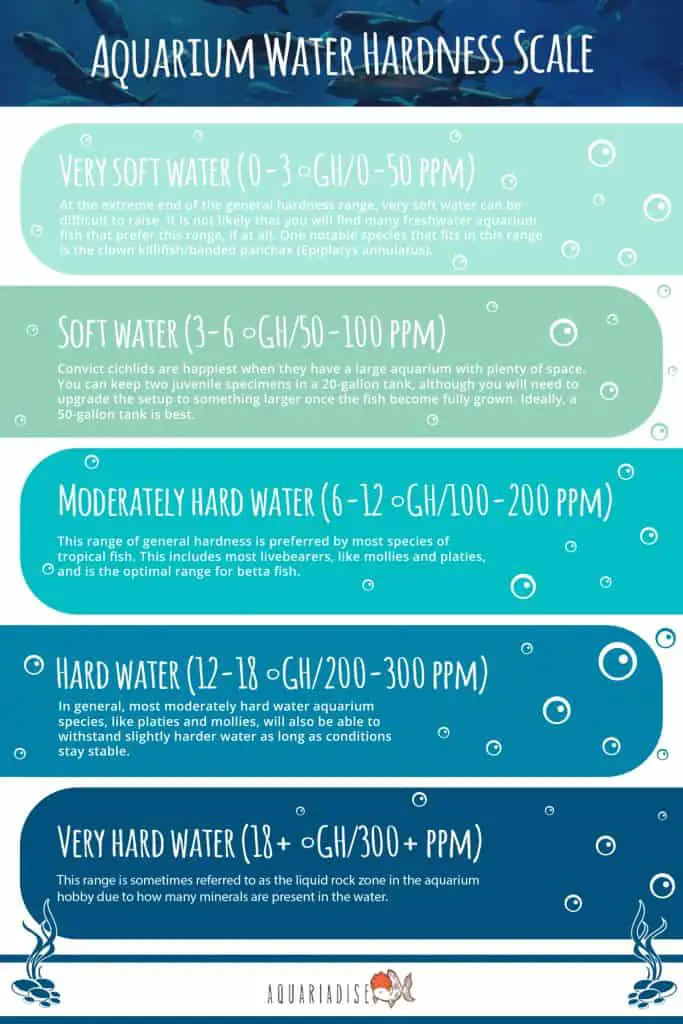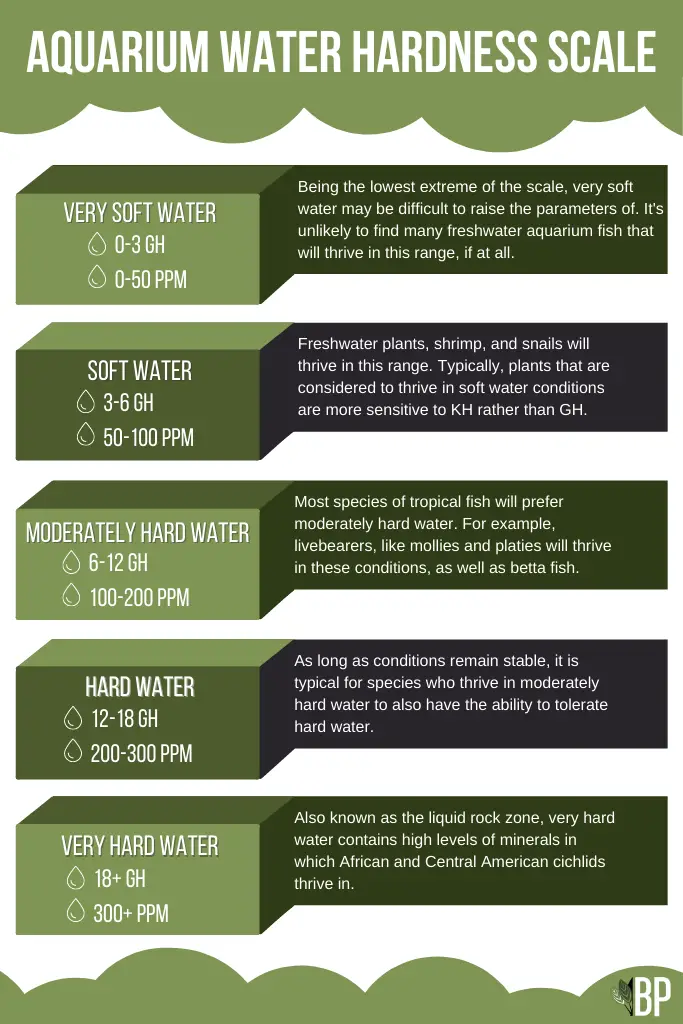Betta fish are one of the most popular aquarium fish, known for their vibrant colors and unique personalities. However, many people don’t realize that the quality of the water they live in can have a significant impact on their health and well-being. One important factor to consider is water hardness, which can affect everything from the fish’s immune system to their ability to breathe properly.
Water hardness refers to the level of dissolved minerals in the water, particularly calcium and magnesium. While some fish species are more adaptable to different levels of hardness, bettas are notoriously sensitive to changes in their environment. Understanding the importance of water hardness for betta fish is crucial for ensuring their long-term health and happiness. In this article, we’ll explore the reasons why water hardness matters for bettas and what you can do to maintain the ideal conditions for your fish.

Understanding the Importance of Water Hardness for Betta Fish
Betta fish are one of the most popular freshwater aquarium fish in the world. They are known for their vibrant colors and long, flowing fins. However, keeping betta fish healthy and happy requires more than just feeding them and changing their water. One of the most important factors to consider when caring for betta fish is water hardness. In this article, we will discuss the importance of water hardness for betta fish and how it can affect their health and well-being.
What is Water Hardness?
Water hardness refers to the amount of dissolved minerals in the water. The two most common minerals that affect water hardness are calcium and magnesium. These minerals are naturally present in water and can have a significant impact on the health of betta fish. Water hardness is typically measured in parts per million (ppm) or degrees of hardness (dH).
There are two types of water hardness: temporary hardness and permanent hardness. Temporary hardness is caused by the presence of bicarbonate ions and can be removed by boiling the water. Permanent hardness, on the other hand, is caused by the presence of calcium and magnesium ions and cannot be removed through boiling.
Why is Water Hardness Important for Betta Fish?
The water hardness in your betta fish’s aquarium can have a significant impact on their health and well-being. Betta fish are native to the slow-moving waters of Southeast Asia, which are typically soft and slightly acidic. If the water in your betta fish’s aquarium is too hard, it can cause a range of health problems, including:
- Fin rot
- Stress
- Difficulty breathing
- Reduced appetite
- Difficulty swimming
On the other hand, if the water in your betta fish’s aquarium is too soft, it can also cause health problems, including:
- Difficulty maintaining a stable pH
- Increased risk of disease
- Difficulty maintaining water chemistry
How to Test Water Hardness for Betta Fish
Testing water hardness for betta fish is relatively straightforward. You can purchase a water hardness test kit from your local pet store or online. The test kit will typically include test strips or drops that you can use to determine the water hardness of your betta fish’s aquarium.
Once you have your test kit, you should follow the instructions carefully. In general, you will need to dip a test strip or add a few drops of the test solution to a sample of your aquarium water. The solution will change color, indicating the water hardness in parts per million (ppm) or degrees of hardness (dH).
How to Adjust Water Hardness for Betta Fish
If you find that the water hardness in your betta fish’s aquarium is too high or too low, you can take steps to adjust it. One of the easiest ways to adjust water hardness is by using a water softener. Water softeners remove calcium and magnesium ions from the water, reducing its hardness.
You can also adjust water hardness by using chemical additives. For example, if the water in your betta fish’s aquarium is too soft, you can add calcium or magnesium to increase its hardness. If the water is too hard, you can add a water conditioner that will bind to the excess minerals and remove them from the water.
The Benefits of Maintaining Proper Water Hardness for Betta Fish
Maintaining proper water hardness is essential for the health and well-being of your betta fish. When the water in your betta fish’s aquarium is at the correct hardness level, they will be less stressed and more active. They will also be less likely to develop health problems, such as fin rot and difficulty breathing.
Water Hardness vs. pH
Water hardness and pH are two different but related aspects of water chemistry. While water hardness refers to the amount of dissolved minerals in the water, pH refers to the acidity or alkalinity of the water. Maintaining the correct pH level in your betta fish’s aquarium is also essential for their health and well-being.
However, it’s important to note that water hardness and pH are not the same thing. You can have water that is hard but has a neutral pH, or water that is soft but has a high or low pH. Therefore, it’s important to test and adjust both water hardness and pH to ensure that your betta fish’s aquarium is healthy and stable.
The Bottom Line
Water hardness is an essential factor to consider when caring for betta fish. Maintaining the correct water hardness level can help prevent health problems and ensure that your betta fish are happy and healthy. Be sure to test the water hardness in your betta fish’s aquarium regularly and adjust it as needed to maintain optimal conditions.
Frequently Asked Questions
In this section, we will discuss the importance of water hardness for Betta Fish and answer some frequently asked questions about it.
What is water hardness, and why does it matter for Betta Fish?
Water hardness is a measure of the amount of dissolved minerals, particularly calcium and magnesium, in the water. It is essential to understand water hardness for Betta Fish because they are sensitive to changes in water chemistry. Betta Fish thrive in a specific range of water hardness, and if the water is too soft or too hard, it can cause health problems and even death.
If the water is too soft, the Betta Fish may not be able to regulate its electrolyte balance, which can lead to stress, a weakened immune system, and even death. If the water is too hard, the Betta Fish may have trouble breathing and may develop skin and gill irritations.
How can I test the water hardness for my Betta Fish?
You can test the water hardness for your Betta Fish by using a water hardness test kit. These kits are readily available at pet stores and online. The kit will measure the amount of dissolved minerals in the water, and you can then adjust the water hardness as necessary.
If you are not comfortable testing the water yourself, you can take a sample of your Betta Fish’s water to your local pet store, and they can test the water for you. They can also help you determine the appropriate water hardness for your Betta Fish.
What is the ideal water hardness for Betta Fish?
The ideal water hardness for Betta Fish is between 4 and 6 dGH (degrees of General Hardness). It is essential to maintain this range to ensure your Betta Fish’s health and well-being. If the water hardness is too high or too low, it can cause health problems and even death.
You can adjust the water hardness by adding a water conditioner to the tank or by using a water softener. It is essential to follow the manufacturer’s instructions carefully when using these products to avoid over-treating the water.
What are some signs that my Betta Fish is experiencing water hardness issues?
If your Betta Fish is experiencing water hardness issues, you may notice several signs. The fish may become lethargic, lose their appetite, and develop a dull or discolored appearance. They may also develop skin and gill irritations or become more susceptible to diseases and infections.
If you notice any of these signs, it is essential to test the water hardness and take corrective action as soon as possible. The longer the Betta Fish is exposed to the incorrect water hardness, the more severe the health issues may become.
How can I maintain the correct water hardness for my Betta Fish?
To maintain the correct water hardness for your Betta Fish, it is essential to test the water regularly and make adjustments as necessary. You can also add a water conditioner to the tank or use a water softener to adjust the water hardness.
It is also crucial to keep the tank clean and well-maintained to ensure that the water hardness remains stable. Regular water changes and proper filtration can help prevent fluctuations in water hardness and ensure your Betta Fish stays healthy and happy.

Fish Tank Water Hardness Fully Explained: Don’t Kill Your Fish!
In conclusion, water hardness is a crucial factor in the well-being of betta fish. As a responsible pet owner, it is important to understand the impact that water hardness can have on your betta’s health. By providing the appropriate level of water hardness, you can ensure that your betta fish thrives in a healthy and comfortable environment.
One of the main reasons why water hardness is so important is because it affects the pH level of the water. Betta fish are sensitive to changes in pH, and if the water hardness is too high or too low, it can cause stress, illness, and even death. Maintaining the correct water hardness level is essential for maintaining a stable pH and keeping your betta fish healthy.
Lastly, monitoring water hardness is easy and can be done with a simple water test kit. By testing your water regularly and making adjustments as necessary, you can ensure that your betta fish is getting the right level of water hardness. With proper care and attention, your betta fish can live a happy and healthy life in their aquatic home.
